- Home
- Mario Puzo
The Fourth K Page 5
The Fourth K Read online
Page 5
She fed him a marvelous meal, they drank a superior bottle of wine and then they made love again. Zonzi dressed, kissed her good-bye, and glowed with the belief that he truly deserved such good fortune. After he left she took a long look around the shop. She gathered all her belongings together with some extra clothes and used Yabril’s suitcase to carry them. That had been part of the instructions. There should be no trace of Yabril. Her last task was to erase all the obvious fingerprints she might have left in the shop, but that was just a token task. She would probably not get all of them. Then carrying the suitcase, she went out, locked up the shop, and walked out of the terminal. Outside in the brilliant Easter sunshine, a woman of her own cadre was waiting with a car. She got into it, gave the driver a brief kiss of greeting and said almost regretfully, “Thank God, that’s the end of that.” The other woman said, “It wasn’t so bad. We made money on the shop.”
Yabril and his cadre were in the tourist section because Theresa Kennedy, daughter of the President of the United States, was traveling first class with her six-man Secret Service security detail. Yabril did not want the delivery of the gift-wrapped weapons to be seen by them. He also knew that Theresa Kennedy would not get on the plane until just before takeoff, that the security guards would not be on the plane beforehand because they never knew when Theresa Kennedy would change her mind and, Yabril thought, because they had become lazy and careless.
The plane, a jumbo jet, was far from fully occupied. Not many people in Italy choose to travel on Easter Sunday, and Yabril wondered why the President’s daughter was doing so. After all, she was a Roman Catholic, though lapsed into the new religion of the liberal left, that most despicable political division. But the sparsity of passengers suited his plans—a hundred hostages, easier to control.
An hour later, with the plane in the air, Yabril slumped down in his seat as the women began tearing the Gucci paper off the packages. The three men of the cadre used their bodies as shields, leaning over the seats and talking to the women. As there were no passengers seated near them, they had a small circle of privacy. The women handed Yabril the grenades wrapped in gift paper and he adorned his body with them quickly. The three men accepted the small handguns and hid them inside their jackets. Yabril also took a small handgun, and the three women armed themselves.
When all was ready, Yabril intercepted a stewardess going down the aisle. She saw the grenades and the gun even before Yabril whispered his commands and took her by the hand. The look of amazement, then shock, then fear was familiar to him. He held her clammy hand and smiled. Two of his men positioned themselves to command the tourist section. Yabril still held the stewardess by the hand as they entered first class. The Secret Service bodyguards saw him immediately, took note of the grenades and saw the guns. Yabril smiled at them. “Remain seated, gentlemen,” he said. The President’s daughter slowly turned her head and gazed into Yabril’s eyes. Her face became taut but not frightened. She is brave, Yabril thought, and handsome. It was really a pity. He waited until the three women of the cadre had taken their positions in the first-class cabin and then had the stewardess open the door leading to the pilots’ cockpit. Yabril felt he was entering the brain of a huge whale and making the rest of the body helpless.
When Theresa Kennedy first saw Yabril, her body suddenly shook with the nausea of unconscious recognition. He was the demon she had been warned against. There was a ferocity in his narrow dark face; its brutal, massive lower jaw gave it the quality of a face in a nightmare. The grenades strung over his jacket and in his hand looked like squat green toads. Then she saw the three women dressed in dark trousers and white jackets with the large steel guns in their hands. After that first shock, Theresa Kennedy’s second reaction was that of a guilty child. Shit, she had gotten her father into trouble; she would never ever be able to get rid of her Secret Service security detail. She watched Yabril go to the door of the pilots’ cabin holding the stewardess by the hand. She turned her head to exchange a look with the chief of her security detail, but he was watching the armed women very intently.
At that moment one of Yabril’s men came into the firstclass cabin holding a grenade in his hand. One of the women made another stewardess pick up the intercom. The voice came over the phone. It quavered only slightly. “All passengers, fasten your seat belts. The plane has been commandeered by a revolutionary group. Please remain calm and await further instructions. Do not stand up. Do not touch your hand luggage. Do not leave your seats for any reason. Please remain calm. Remain calm.”
In the cockpit the pilot saw the stewardess enter and said to her excitedly, “Hey, the radio just said somebody shot at the Pope.” Then he saw Yabril enter behind the stewardess and his mouth opened into a silent “O” of surprise, words frozen there just as in a cartoon, Yabril thought, as he raised his hand that held the grenade. But the pilot had said, “… shot at the Pope.” Did that mean Romeo had missed? Had the mission already failed? In any case Yabril had no alternative. He gave his orders to the pilot to change course and head for the Arab state of Sherhaben.
In the sea of humanity in St. Peter’s Square, Romeo and his cadre floated to a corner backed by a stone wall, and formed their own island. Annee in her nun’s habit stood directly in front of Romeo, gun ready beneath her habit. She had the responsibility to protect him, give him time for his shot. The other members of the cadre, in their religious disguises, formed a circle, a perimeter to give him space. They had three hours to wait before the Pope appeared.
Romeo leaned back against the stone wall, shuttered his eyes against the Easter-morning sun and quickly his mind ran over the rehearsed moves of the operation. When the Pope appeared, Romeo would tap the shoulder of the man on his left, who would then set off the radio signal device that would detonate the holy figurines on the opposite wall of the square. In that moment of the explosions he would take out his rifle and fire—the timing had to be exact so that his shot would seem to be a reverberation of the other explosions. Then he would drop the rifle, his monks and nuns would form a circle around him and they would flee with the others. The figurines were also smoke bombs, and St. Peter’s Square would be enveloped by dense clouds. There would be enormous confusion and there would be panic. With all this he should be able to make his escape. Those spectators near him in the crowd might be dangerous, for they would be aware of his actions, but the movement of the multitude in flight would soon separate them. Those who were foolhardy enough to persist in pursuing him would be gunned down.
Romeo could feel the cold sweat on his chest. The vast crowd waving flowers aloft became a sea of white and purple, pink and red. He wondered at their joy, their belief in the Resurrection, their ecstasy of hope against death. He wiped his hands against the outside of his coat and felt the weight of his rifle in its sling. He could feel his legs begin to ache and go numb. He sent his mind outside his body to pass the long hours he would have to wait for the Pope to appear on his balcony.
Lost scenes from his childhood formed again. Tutored for confirmation by a romantic priest, he knew that a red-hatted senior cardinal always certified the death of a Pope by tapping him on the forehead with a silver mallet. Was that still really done? It would be a very bloody mallet this time. But how big would such a mallet be? Toy-sized? Heavy and big enough to drive a nail? But of course it would be a precious relic from the Renaissance, encrusted with jewels, a work of art. No matter, there would be very little of the Pope’s head left to tap; the rifle under his coat held explosive bullets. And Romeo was sure he would not miss. He believed in his left-handedness, to be mancino was to be successful, in sports, in love and, certainly by every superstition, in murder.
As he waited, Romeo wondered that he had no sense of sacrilege—after all, he had been brought up a strict Catholic in a city whose every street and building reminded one of the beginnings of Christianity. Even now he could see the domed roofs on holy buildings like marble disks against the sky, hear the deep consoling yet intimidating bells of
churches. In this great hallowed square he could see the statues of martyrs, smell the very air choked with the countless spring flowers offered by true believers in Christ.
The overpowering fragrance of the multitudinous flowers washed over him and he was reminded of his mother and father and the heavy scents they always wore to mask the odor of their plush and pampered Mediterranean flesh.
And then the vast crowd in their Easter finery began shouting “Papa, Papa, Papa!” Standing in the lemon light of early spring, stone angels above their heads, the people chanted incessantly for the blessing of their Pope. Finally two red-robed cardinals appeared and stretched out their arms in benediction. Then Pope Innocent was on the balcony.
He was a very old man dressed in a chasuble of glittering white; on it was a cross of gold, the woolly pallium, embroidered with crosses. On his head was a white skullcap and on his feet the traditional low, open red shoes, gold crosses embroidered on their fronts. On one of the hands raised to greet the crowd was the pontifical fisherman’s ring of Saint Peter.
The multitude sent their flowers up into the sky, the voices roared in ecstasy, the balcony shimmered in the sun as if to fall with the descending flowers.
At that moment Romeo felt the dread these symbols had always inspired in his youth, recalling the red-hatted cardinal of his confirmation, who was pockmarked like the Devil, and then he felt an elation that lifted his whole being into bliss, ultimate joy. Romeo tapped the shoulder of the man on his left to send the radio signal.
The Pope raised his white-sleeved arms to answer the cries of “Papa, Papa!” to bless them all, to praise the Eastertide, the Resurrection of Christ, to salute the stone angels that rode around the walls. Romeo slid his rifle out from beneath his coat; two monks of his cadre in front of him knelt to give him a clear view. Annee placed herself so that he could lay his rifle across her shoulder. The man on his left flashed the radio signal that would set off the mined figurines on the other side of the square.
The explosions rocked the foundations of the square, a cloud of pink floated in the air, the fragrance of the flowers turned rotten with the stench of burnt flesh. And at that moment Romeo, rifle sighted, pulled the trigger. The explosions on the other side of the square changed the welcoming roar of the crowd to what sounded like the shrieking of countless gulls.
On the balcony the body of the Pope seemed to rise up off the ground, the white skullcap flew into the air, swirled in the violent winds of compressed air and then drifted down into the crowd, a bloody rag. A wail of horror, of terror and animal rage, filled the square as the body of the Pope slumped over the balcony rail. His cross of gold dangled free, the pallium drenched red.
Clouds of stone dust rolled over the square. Marble fragments of shattered angels and saints fell. There was a terrible silence, the crowd frozen by the sight of the murdered Pope. They could see his head blown apart. Then the panic began. The people fled from the square, trampling the Swiss Guards who were trying to seal off the exits. The gaudy Renaissance uniforms were buried by the mass of terror-stricken worshipers.
Romeo let his rifle drop to the ground. Surrounded by his cadre of armed monks and nuns, he let himself be swept out of the square into the streets of Rome. He seemed to have lost his vision and staggered blindly; Annee grasped him by the arm and thrust him into the waiting van. Romeo held his hands over his ears to shut out the screams; he was shaking with shock, and then with a sense of exaltation followed by a sense of wonder, as if the murder had been a dream.
On the jumbo jet scheduled from Rome to New York, Yabril and his cadre were in full control, the first-class section cleared of all passengers except Theresa Kennedy.
Theresa was now more interested than frightened. She was fascinated that the hijackers had so easily cowed her Secret Service detail by simply showing detonation devices all over their bodies, which meant that any bullet fired would send the plane flying into bits through the skies. She noted that the three men and three women were very slender with faces screwed up in the tension shown by great athletes in moments of intense competition. A male hijacker gave one of her Secret Service agents a violent push out of the first-class cabin and kept pushing him down the open aisle of the tourist section. One of the female hijackers kept her distance, her gun at the ready. When a Secret Service agent showed some reluctance to leave Theresa’s side, the woman raised her gun and pressed the barrel to his head. And her squinting eyes showed plainly she was about to shoot; her lips were parted slightly to relieve pressure from the clenching of the muscles around her mouth. At that moment Theresa pushed her guard away and put her own body in front of the woman hijacker, who smiled with relief and waved her into the seat.
Theresa watched Yabril supervise the operation. He seemed almost distant, as if he were a director watching his actors perform, not seeming to give orders but providing only hints, suggestions. With a slight reassuring smile he motioned that she should keep to her seat. It was the action of a man looking after someone who had been put in his special care. Then he went into the pilots’ cabin. One of the male hijackers guarded the entry into first class from the tourist cabin. Two women hijackers stood back to back in the section with Theresa, guns at the ready. There was a stewardess manning the intercom phone that relayed messages to the passengers under the direction of the male hijacker. They all looked too small to cause such terror.
In the cockpit Yabril gave the pilot permission to radio that his plane had been hijacked and relay the new flight plan to Sherhaben. The American authorities would think their only problem was negotiating the usual Arab terrorist demands. Yabril stayed in the cabin to listen to the radio traffic.
As the plane flew on there was nothing to do but wait. Yabril dreamed of Palestine, as it had been when he was a child, his home a green oasis in the desert, his father and mother angels of light, the beautiful Koran as it rested on his father’s desk always ready to renew faith. And how it had all finished in dead gray rolls of smoke, fire and the brimstone of bombs falling from the air. And the Israelis had come, and it seemed as if his whole childhood was spent in some great prison camp of ramshackle huts, a vast settlement united in only one thing, their hatred of the Jews. Those very same Jews that the Koran praised.
He remembered how even at the university some of the teachers spoke of a botched job as “Arab work.” Yabril himself had used the phrase to a gunmaker who had given him defective weapons. Ah, but they would not call this day’s business “Arab work.”
He had always hated the Jews—no, not the Jews, the Israelis. He remembered when he was a child of four, maybe five, not older, the soldiers of Israel had raided the settlement camp in which he went to school. They had received false information, “Arab work,” that the settlement was hiding terrorists. All the inhabitants had been ordered out of their houses and into the streets, with their hands up. Including the children in the long yellow-painted tin hut that was the school and lay just a little outside the settlement. Yabril with other small boys and girls his age had clustered together wailing, their little arms and hands high in the air, screaming their surrender, screaming in terror. And Yabril always remembered one of the young Israeli soldiers, the new breed of Jew, blond as a Nazi, looking at the children with a sort of horror, and then the fair skin of that alien Semite’s face was streaming with tears. The Israeli lowered his gun and shouted at the children to stop, to put down their hands. They had nothing to fear, he said, little children had nothing to fear. The Israeli soldier spoke almost perfect Arabic, and when the children still stood with their arms held high, the soldier strode among them trying to pull down their arms, weeping all the while. Yabril never forgot the soldier, and resolved, later in life, never to be like him, never to let pity destroy him.
Now, looking below, he could see the deserts of Arabia. Soon the flight would come to an end and he would be in the Sultanate of Sherhaben.
Sherhaben was one of the smallest countries in the world but had such an abundance of oil that its ca
mel-riding Sultan’s hundreds of children and grandchildren all drove Mercedeses and were educated at the finest universities abroad. The original Sultan had owned huge industrial companies in Germany and the United States and had died the single most wealthy person in the world. Only one of his grandchildren had survived the murderous intrigues of half brothers and become the present Sultan—Maurobi.
The Sultan Maurobi was a militant and fanatically devout Muslim, and the citizens of Sherhaben, now rich, were equally devout. No woman could go without a veil; no money could be loaned for interest; there was not a drop of liquor in that thirsty desert land except at the foreign embassies.
Long ago Yabril had helped the Sultan establish and consolidate power by assassinating four of the Sultan’s more dangerous half brothers. Because of these debts of gratitude, and because of his own hatred of the great powers, the Sultan had agreed to help Yabril in this operation.
The plane carrying Yabril and his hostages landed and rolled slowly toward the small glass-encircled terminal, pale yellow in the desert sun. Beyond the airfield was an endless stretch of sand studded with oil rigs. When the plane came to a stop, Yabril could see that the airfield was surrounded by at least a thousand of Sultan Maurobi’s troops.
Now the most intricate and satisfying part of the operation, and the most dangerous, would begin. He would have to be careful until Romeo was finally in place. And he would be gambling on the Sultan’s reaction to his secret and final checkmate. No, this was not Arab’s work.
Because of the European time difference Francis Kennedy received the first report of the shooting of the Pope at 6:00 A.M. Easter Sunday. It was given to him by Press Secretary Matthew Gladyce, who had the White House watch for the holiday. Eugene Dazzy and Christian Klee had already been informed and were in the White House.
Francis Kennedy came down the stairs from his living quarters and entered the Oval Office to find Dazzy and Christian waiting for him. They both looked grim. Far away on the streets of Washington there were long screams of sirens. Kennedy sat down behind his desk. He looked at Eugene Dazzy, who as chief of staff would do the briefing.

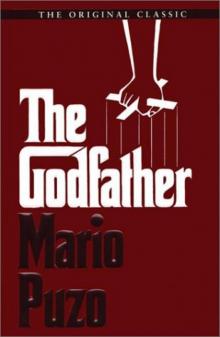 The Godfather
The Godfather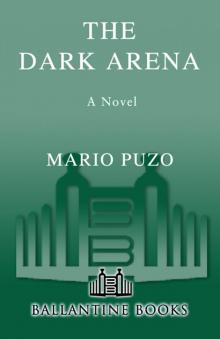 The Dark Arena
The Dark Arena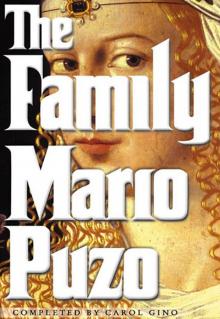 The Family
The Family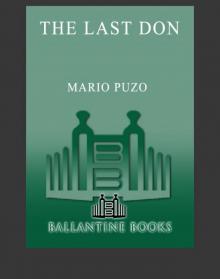 Last Don
Last Don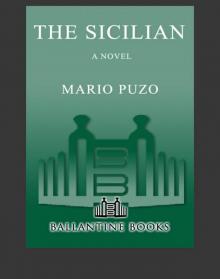 The Sicilian
The Sicilian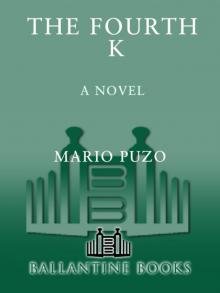 The Fourth K
The Fourth K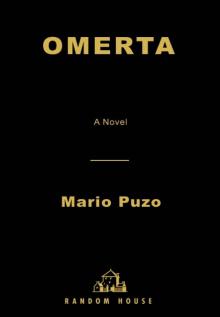 Omerta
Omerta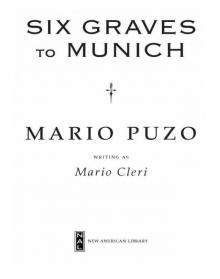 Six Graves to Munich
Six Graves to Munich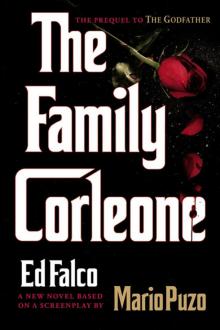 The Family Corleone
The Family Corleone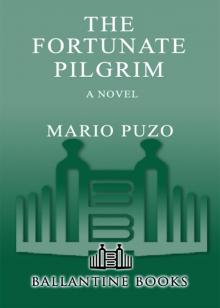 The Fortunate Pilgrim
The Fortunate Pilgrim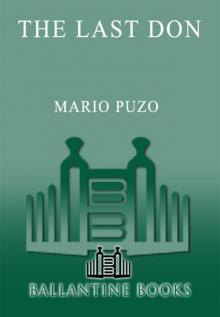 The Last Don
The Last Don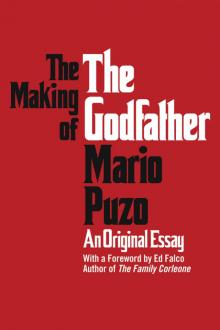 The Making of the Godfather
The Making of the Godfather Fools die
Fools die The Sicilian (v2.0)
The Sicilian (v2.0)